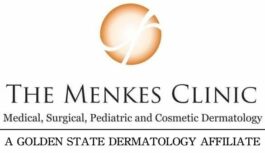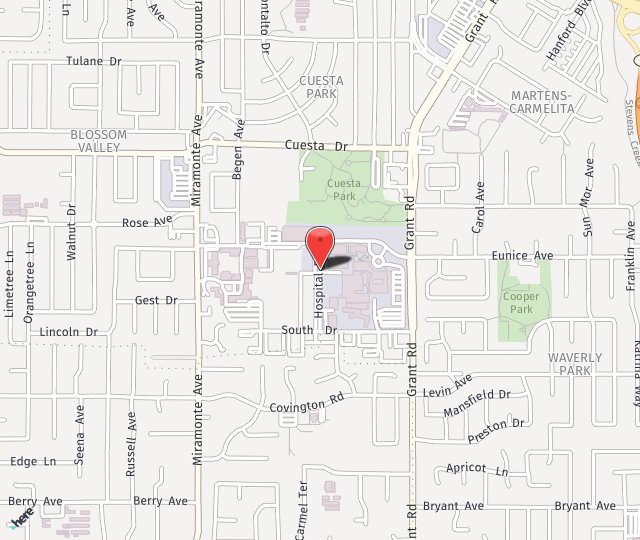Did you know that skin cancer is the most common type of cancer in the U.S.? It’s estimated that nearly 9,500 people in the United States are diagnosed with skin cancer daily.
May is National Skin Cancer Awareness Month, making it the perfect time to know more about skin cancer. Keep reading to learn more about skin cancer, signs to watch out for, the importance of skin cancer screenings, and ways to minimize your skin cancer risk.
What is Skin Cancer Awareness Month?

Skin Cancer Awareness Month is a yearly campaign devoted to spreading awareness about the dangers of skin cancer, sharing the facts about how to reduce your risk, and prompt detection to help save lives.
What is Skin Cancer?
Skin cancer is the uncontrolled growth of cells in the skin. It occurs when mutations happen in the DNA of skin cells due to various factors, like prolonged sun exposure. These mutations cause skin cells to multiply quickly and stick together, forming malignant tumors.
Malignant tumors crowd healthy skin cells and damage surrounding tissue. Without treatment, cancerous tumors can spread to other areas of the body, including vital organs.
Although skin cancer is the most common of all cancers, it’s also the most curable. However, it must be caught and treated early.
Which Cells Are Involved in Skin Cancer?
The skin consists of several layers, including the epidermis, which is the outermost layer. The epidermis protects the body from the external environment, creates new skin cells, and gives the skin its color.
Skin cancer starts in the epidermis. The epidermis comprises three main kinds of cells:
Squamous Cells
Squamous cells are located in the outermost part of the epidermis and are continually shed as new ones form.
Basal Cells
The basal cells sit right below the squamous cells. They divide and copy themselves to create new skin cells.
Melanocyte Cells
Melanocyte cells are found at the base of the epidermis. They produce melanin, the pigment that gives skin its brown or tan color.
What are the Different Types of Skin Cancer?
Where the skin cancer starts determines its type. The main types of skin cancer include:
Basal Cell Carcinoma (BCC)
Basal cell carcinoma develops in the basal cells and is common on the arms, face, or neck.
However, it can also form in other areas, including the legs, chest, and abdomen. Basal cell carcinoma is often a slow-growing cancer and rarely spreads to other parts of the body.
It’s also highly treatable when diagnosed early and treated correctly, but it can be disfiguring.
Squamous Cell Carcinoma (SCC)
When squamous cells grow out of control, they can develop into squamous cell carcinoma. This type of cancer typically occurs on sun-exposed parts of the body, such as the ears, face, arms, back, and chest.
Like basal cell carcinoma, squamous cell carcinoma is highly curable when found and treated promptly.
Melanoma
Melanoma is the most aggressive skin cancer, starting in melanocytes. It often develops in areas exposed to the sun, such as the face, arms, back, and legs.
Melanoma can also form in other parts of the body such as the mouth, soles of the feet, palms of the hands, under the nails, anal area, and genitals. Although it’s less common than squamous and basal cell carcinoma, melanoma is the most dangerous because it spreads rapidly to other organs when not treated in its early stages.
Detecting melanoma at an early stage is vital. Prompt diagnosis and treatment can significantly increase the chances of a cure.
Causes and Risk Factors for Skin Cancer
Exposure to too much UV radiation from the sun, tanning beds, or artificial sunlight can cause skin cancer. Other risk factors for skin cancer include:
- Smoking
- Older age
- Having over 50 moles on your body
- A weakened immune system
- Having a family history of skin cancer
- History of blistering sunburns
- Frequent exposure to X-rays
- Previous history of skin cancer
- Fair skin, light-colored or blue eyes, red or blonde hair, or freckles
What Do Dermatologists Look for During Skin Cancer Screening?
A skin cancer screening is a thorough visual examination of the entire body, from the scalp to the soles of the feet, to check for signs of cancer. During a skin cancer screening, your dermatologist will search for the ABCDEs of every mole, blemish, or spot on the skin from head to toe. These are all possible warning signs of skin cancer and include:
A: Asymmetry, where the mole is uneven or misshapen
B: Border with irregular, ragged, or poorly defined edges
C: Colors such as black, brown, or tan inside a mole
D: Diameter of the blemish or mole bigger than the size of a pencil eraser or pea
E: Evolving or changing over time in shape, size, elevation, or color
If there are suspicious-looking spots or moles, your The Menkes Clinic dermatologist may monitor them over time for changes or test for pre-cancer or cancer. Regular skin cancer screenings can help detect skin cancer early before it worsens or spreads.
Undergoing these screenings gives you the best chance of successful skin cancer treatment and complete recovery. Skin cancer screening is also a form of preventative care.
These screenings can detect pre-cancerous lesions, enabling your dermatologist to remove them if necessary.
How Can You Reduce Your Risk of Skin Cancer?
You can lower your chances of developing skin cancer by following these tips:
- Steer clear of tanning beds
- Wear clothes that cover your skin
- Schedule routine skin cancer screenings with your dermatologist
- Invest in wide-brimmed hats to cover your face, neck, and ears
- Use an umbrella or stay in the shade to protect yourself from UV rays
- Wear high-quality sunglasses that block 99 percent to 100 percent of UVA and UVB rays
- Wear sunscreen with an SPF of 30 or higher daily, even when it’s cloudy, and reapply often
- If possible, avoid going outside when the sun’s UV rays are the strongest, typically from 10:00 am to 4:00 pm
- Every month, look for new, unusual, asymmetrical, painful, or changing spots on your skin, including blemishes, freckles, moles, wounds that are not healing, or areas of pigmentation. If you see any of these, see your dermatologist.
Protect Yourself with Skin Cancer Screenings

Frequent skin cancer screenings at The Menkes Clinic are the first line of defense against skin cancer. Our board-certified dermatologists perform thorough full-body skin checks to detect skin cancer as early as possible and ensure successful treatment.
Is it time to schedule a skin cancer screening? Make your skin a priority by requesting your appointment at The Menkes Clinic in Mountain View, CA, today!

